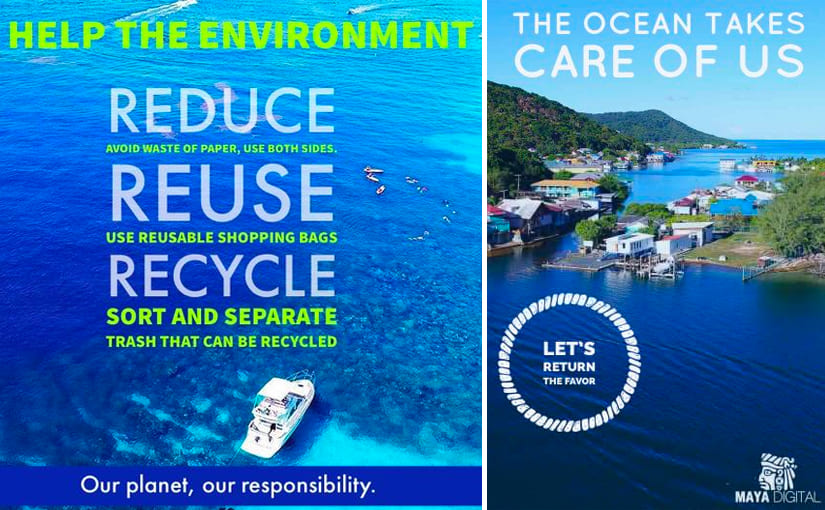Tourism is one of the world’s fastest growing industries and is a major source of income for many countries. Being a people-oriented industry, tourism also provides many jobs which have helped revitalise local economies.
However, like other forms of development, tourism can also cause its share of problems, such as social dislocation, loss of cultural heritage, economic dependence and ecological degradation. Learning about the impacts of tourism has led many people to seek more responsible holidays. These include various forms of alternative or sustainable tourism such as: ‘nature-based tourism’, ‘ecotourism’ and ‘cultural tourism’. Sustainable tourism is becoming so popular that some say that what we presently call ‘alternative’ will be the ‘mainstream’ in a decade.
In Roatan Five Stars we consider and we are committed that all tourism activities of whatever motivation – holidays, business travel, conferences, adventure travel and ecotourism – need to be sustainable. Sustainable tourism is defined as “tourism that respects both local people and the traveller, cultural heritage and the environment”. It seeks to provide people with an exciting and educational holiday that is also of benefit to the people of the host country.
Tourism Impacts
- International tourist arrivals have increased from 25 million globally in 1950, to 278 million in 1980, 527 million in 1995, and 1.32 billion in 2017. They are expected to reach 1.8 billion by 2030.
- The average international tourist receipt is over US$700 per person and travellers spent over $1.4 trillion
- Travel and tourism represents approximately 10% of total global Gross Domestic Product (GDP) in 2016 (if it include tourism related business (e.g. catering, cleaning) (US $7 trillion).
- The global travel and tourism industry creates approximately 11% of the world’s employment (direct & indirect) in 2016.
- At least 25 million people spread over 52 countries are displaced by violence, persecution and/or disasters – tourism receipts in every country are affected by this.
- Leakage in tourism is as high as 80% in the Caribbean (of every dollar earned in tourism-80 cents leaves the country)
- 10,000 people arrive in the Mayan Riviera every day – a destination where there is still no proper recycling
- Although the Bellagio hotel in Las Vegas recycles its water – it still uses 12 million litres of water per year in a water scarce region
- Buying local could achieve a 4-5% reduction in GHG emissions due to large sources of C02 and non C02 emissions during the production of food.
- The average Canadian household used 326 litres of water per day….a village of 700 in a developing country uses an average of 500 litres of water per month AND a luxury hotel room guest uses 1800 litres of water per person per night…
- The average person in the UK uses approximately 150 litres of water per day – 3 times that of a local village in Asia.
- A species of animal or plant life disappears at a rate of one every three minutes
- 70% of marine mammals are threatened
- The Western world (with 17% of the worlds’ population) currently consumes 52% of total global energy.
- 1 acre of trees absorbs 2. 6tonnes of CO2 per year
- More than 80% of the worlds coral reefs are at risk. Nearly 2/3 of Caribbean reefs are in jeopardy and it is reported that 90% of coral reefs will die by 2050
- Eating beef is the most water consumptive practice by travellers
- 2016 was the warmest year by margin on record
- Seawater is expected to rise 70 cm in the next 10 years
- By 2050 climate change could have directly led to the extinction of 30% of species, the death of 90% of coral reefs and the loss of half the Amazon rainforest.

